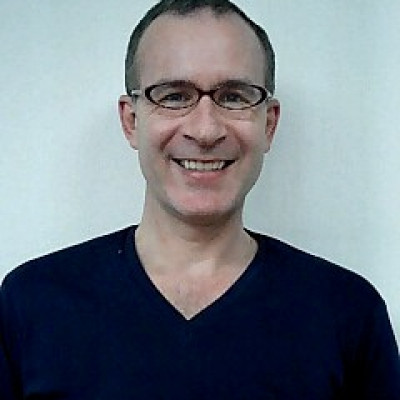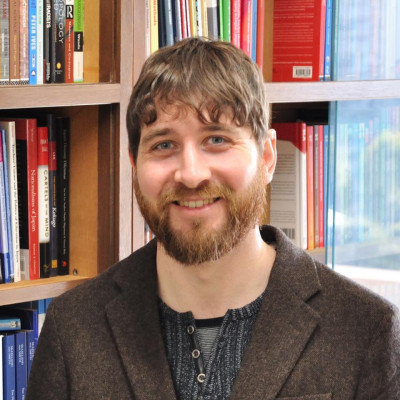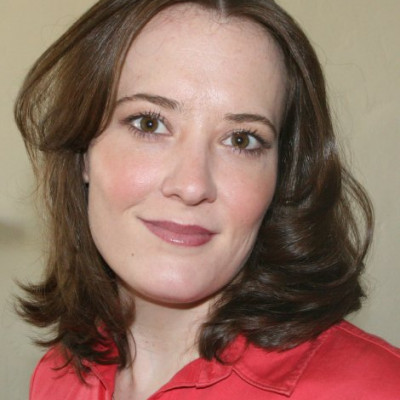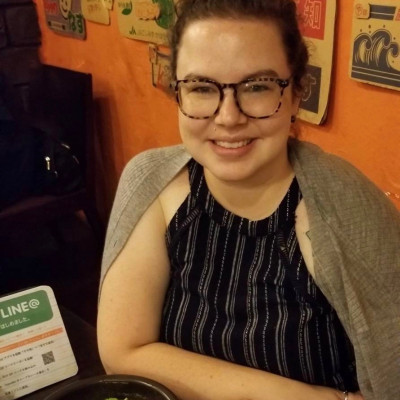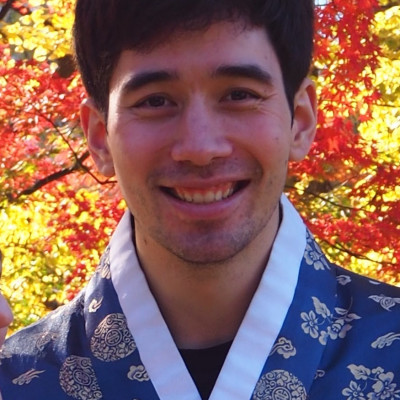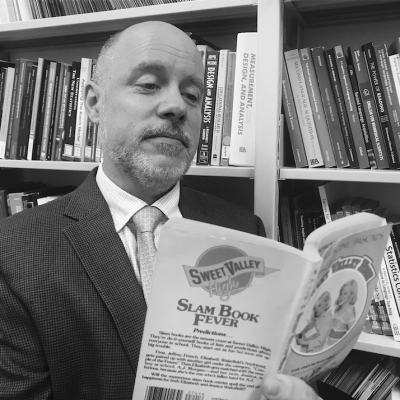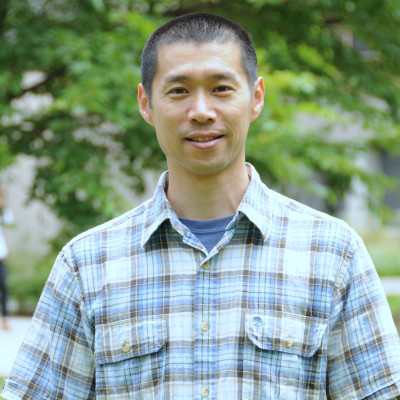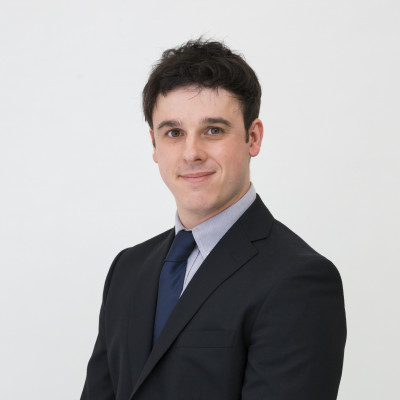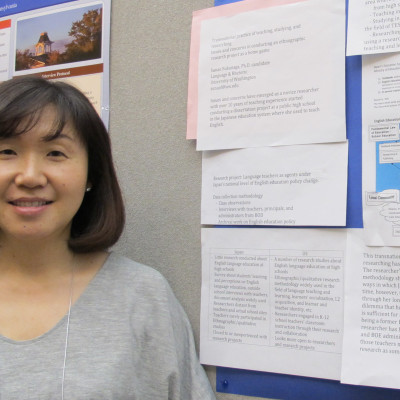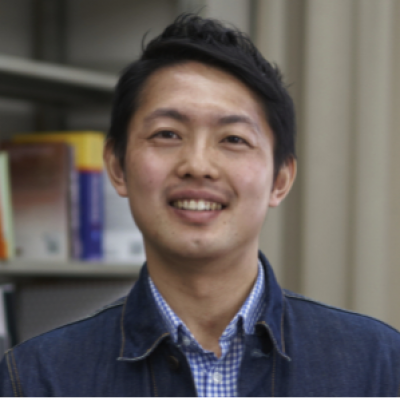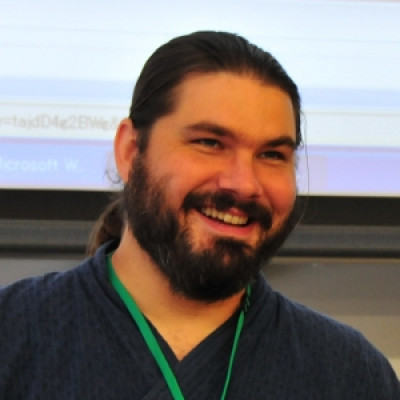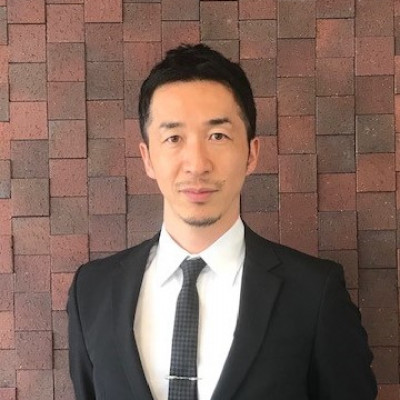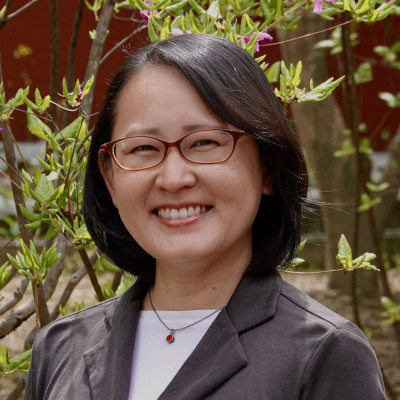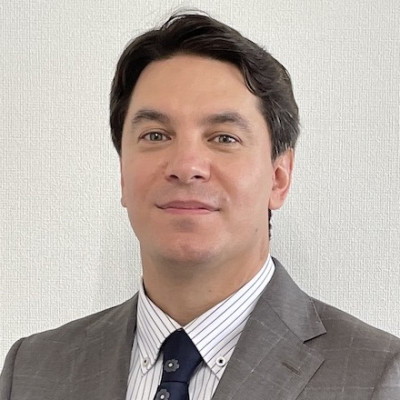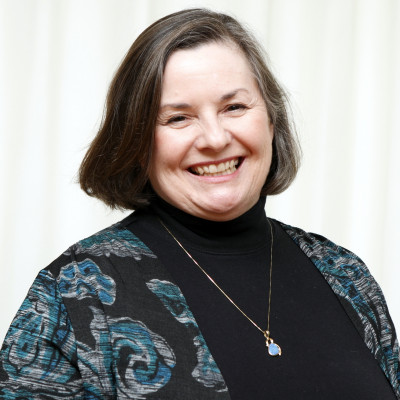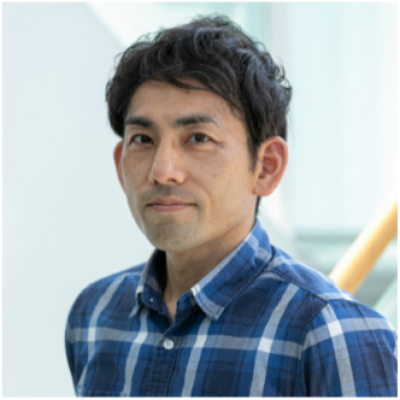Sessions / Teacher Development
Cancelled Professional learning for Hong Kong language teachers: Collaborative mode #2969
Most in-service teachers in Hong Kong schools receive their training through part-time short courses, in which lectures are the major training mode. Traditional approaches that focus on short-term direct transmission to professional development are increasingly regarded as relatively ineffective. This study aims to use a collaborative mode of training for in-service language teachers of special schools for students with intellectual disabilities. Learning communities were organized with the goal of providing participants with a platform through which it is possible to conduct an interactive exchange of ideas and expertise, mutually addressing the issues pertaining to children with language problems. Twelve learning communities were organized. Participants included four educators and 31 expert teachers as trainers, and 101 in-service teachers as trainees. A follow-up survey was conducted to collect information for the evaluation of the effectiveness of the programme. Significant responses were received from trainees as the learned skills and knowledge could be applied to their own schools.
The Well-Balanced Individual: A Challenge for Educators #3120
On an individual level, a key purpose of education is to bring forth the latent abilities that exist in each person. On a societal level, a primary purpose is to contribute to the emergence of an ever-advancing civilization. These purposes are intimately related and can be achieved when individuals act on the basis of an evolving set of knowledge and skills that has practical and beneficial applications, positive emotional health, an ethical foundation in which the welfare of others is important, and an ability to think creatively. Although foreign language teachers are primarily responsible for supporting their students in their efforts to perform the challenging task of acquiring an additional language, foreign language classrooms can--and arguably should--be the site of more diverse types of learning that help learners develop their innate abilities in ways that touch on four aspects of what it means to be human: cognition, affect, ethics, and creativity. These four overlapping aspects can be embedded in language-learning tasks in ways that can potentially lead to cognitive development, the healthy expression of emotion, ethical thinking, and new and interesting angles on ideas and ways of acting in the world.
A quantitative exploration of teacher demotivation in eikaiwa #2879
Teacher demotivation negatively affects the well-being of educators and can increase teacher burnout and turnover intention. Factors contributing to teacher demotivation include a lack of autonomy, interpersonal difficulties in the workplace, inadequate training, and few chances for career progression. In the eikaiwa context, few studies have directly explored teacher demotivation. Taylor (2017, 2019) qualitatively demonstrated demotivation among teachers from both large eikaiwa chains and independent schools alike, yet the depth and scope of the phenomenon within the industry remains unclear. In order to fill this gap, a 32-item Likert scale questionnaire exploring autonomy, training, career progression, interpersonal relationships with colleagues and managers, and turnover intention was developed and distributed online between December 2021 and February 2022. Results from 89 respondents were collected and analyzed. It was found that teachers were most demotivated by limited career progression, lack of training opportunities, and reduced autonomy. They were least demotivated by interpersonal relationships with colleagues. The presenter will consider these results in relation to demographic factors such as gender and school type. Implications for eikaiwa educators will also be discussed.
Cancelled Teacher satisfaction during the COVID-19 pandemic #2873
Since March 2020, the COVID-19 pandemic and resulting emergency measures such as campus closures and sudden shifts to online learning have had numerous effects on how teachers perform their jobs, in particular challenges such as adapting to changes in social interaction and technology (Miller, Parrish, 2021). This study will present data from a survey of 202 Japan-based university instructors using Likert-scale items, open-ended items, and interview data collected at the end of the 2020/2021 academic year. The survey was part of a larger quantitative and qualitative cross-sectional study investigating teacher job satisfaction in Japan. The survey questions relate to overall job satisfaction before and during the pandemic and what aspects of the experience were positive or negative. Survey results indicated several areas of concern, such as isolation, anxiety, and frustration with technology, as well as suggested possible methods to cope with unexpected change and disruption in the education industry, through adaptive use of technology, continuous training, and accessing social networks. Participants will receive practical suggestions for improving their professional development drawn from the survey and the author's personal experience.
Critical co-presenterships: Podcasting as reflective practice #2970
In 2014, the presenters began an independently-produced podcast featuring discussions about various aspects of language education. Although the initial goal of this project was to explore the format while talking about areas of mutual interest, an appreciation began to grow of how collaborative dialogue, in which interaction leads to a co-construction of new ideas and perspectives, can contribute to professional development. To capture this dynamic, the concept of the critical co-presentership was developed – a version of the well-established reflective practice of a critical friendship, but one that takes place within a recorded and publicly available format. This presentation reports on research conducted to explore the concept of the critical co-presentership through a process of duoethnographic reflection, in which two participants juxtapose their respective life histories in order to provide complex and nuanced perspectives on a particular phenomenon. This research led to a deeper conceptualisation of the critical co-presentership, which revealed broader implications for language teacher development. Results suggest that a discussion format that includes a time limit and awareness of a listening audience can assist the participants in defining concepts, connecting individual perspectives with universal themes, and engaging in critical discussion of classroom practice.
Reimagining course outcomes using a distributed leadership approach #2882
This presentation will describe the multi-year process, starting in 2020, of revising the course outcomes of years 1 and 2 in the language institute of a university in Japan, originally developed during an earlier curriculum renewal based on a Multiliteracies framework (New London Group, 1996) to produce culturally and linguistically diverse students (Johnson et al. 2015). The revision process utilized a distributed leadership (Hallinger & Huber, 2012; Spillane, 2006) procedure to give various levels of stakeholders within the institution, from first-year lecturers to coordinators and principal lecturers, the opportunity to collaborate to develop and clarify more specific aims, and address gaps and redundancy to better streamline the outcomes across the courses in the first two years. The final two years of content-based elective courses were also considered, modeling the existing format required for those year levels, to provide better flow throughout a student's whole four-year experience. This cooperative effort to reimagine the course outcomes aims to make it easier for instructors to teach their classes, leading to better student learning outcomes. The presenters, instructors at the institute, will share the multi-step review process and explain how instructor input was incorporated throughout.
Using the J-POSTL Elementary: Benefits, Challenges and Possibilities #2860
A foreign language became a formal subject in Japanese elementary schools in 2020. Due to a lack of specialized English teachers, homeroom teachers are also teaching English classes on their own or in a team teaching combination. Thus, in order to prepare pre-service teachers (PSTs) for this eventuality, two new English courses have been added to the elementary education teacher license curriculum. The Japanese Portfolio for Student Teachers of Languages Elementary (J-POSTL Elementary) is a reflection tool featuring 167 self-assessment descriptors (SADs). Designed to be used by both pre-service and in-service teachers, it is currently being trialed at a number of universities. Qualitative survey data obtained after the completion of the two new English courses indicate that the PSTs found the J-POSTL Elementary useful for reflection, goal-setting and self-evaluation. However, some PSTs felt overwhelmed by the SADs, while others were unsure of how to use the portfolio effectively. This presentation highlights the benefits and challenges of integrating the J-POSTL Elementary into elementary education English classes. Possible future uses and adaptations of the portfolio and its components are also discussed, including English versions to create additional common ground between educators, and extending non-language specific SADs to general elementary education contexts.
Corrective Feedback: Investigating Japanese Learners' Perceptions #2863
Issues surrounding corrective feedback (CF) pose many questions for language teachers, including how often to give such feedback, how explicit to make it, and how closely student expectations in relation to CF align with what is pedagogically sound (Li, 2010). A small-scale study (N = 50) was conducted with the aim of gathering both quantitative and qualitative data on Japanese learners' views on CF to compare that data with what the literature has shown to be effective. The quantitative stage involved adult learners indicating their level of agreement with statements about CF on a five-point scale. In the qualitative stage, participants were first given a short English lesson, together with oral CF treatment according to the preferences they had expressed in the survey, before being interviewed on their views in more detail. Following a brief overview of CF literature, the rationale and study methodology will be explained with the data gathered compared to what previous studies have found. Finally, certain key issues raised in the qualitative section of the study will be discussed in greater detail, including issues conference participants may wish to reflect on in their own practice, as well as suggestions for possible future research in this area.
Cancelled Goals, outcomes, and applications of a classroom-research training project #2866
Opportunities for professional development involving direct instruction and practical experience related to quantitative research methods are limited for working teachers in Japan. The main goal of this presentation is to describe the goals, outcomes, and applications of a collaborative professional development project designed specifically for the needs and interests of language teachers looking to get started with quantitative research in the classroom. Twenty-eight language teachers based at 20 universities around Japan participated in the 2018 Quantitative Research Methods Training Project. In 2018, teachers conducted a small-scale study in their own classrooms that investigated student engagement in an extensive reading activity using Xreading. Throughout the planning, implementation, data analysis, and write-up stages, teachers received guidance from the project coordinator through an online project site and live online instruction. The presenter will introduce the project goals and methods and then describe outcomes in terms of participation evidence, teacher feedback, and tangible products including conference presentations and published. Finally, participants will receive guidance on how they can apply the approach of the project to collaborate with a group of peers to build knowledge and skills doing small-scale quantitative studies. This project is supported by a JSPS Grant-In-Aid.
Connected learning, firsthand – five useful ideas (regardless of your book) #3163
You want learning connected – to the students, language and real usage as well as your book. The author will share five useful ideas from English Firsthand – including ways to use them with (nearly) any textbook: Have the book talk directly to your students, fluency work from the beginning, multisensory pronunciation work and more. And he’ll add a few extras to help you (re)imagine your teaching.
Modern Teacher Talk: Pedagogical Beliefs and Practices of Teachers in Japan #2812
For the past decade MEXT policies have increasingly promoted the teaching of English as a lingua franca (ELF), in which pragmatic skills are as valued as linguistic ones. This study investigated how teachers modify student-directed speech and whether they follow ELF principles of communicative accommodation and translingualism. Since modified speech is especially important for learners who lack exposure to comprehensible L2 input, by examining the teacher talk of experienced educators, best teaching practices can be established. The 19 junior high school teachers recorded dialogues in scripted, free structured, and free response scenarios. Their speech rate and lexical range was compared to 19 English speaking non-teachers to determine how teaching experience affects teacher talk. Though both teachers and non-teachers were willing to accommodate L2 users through speech modification strategies, teachers spoke at a significantly slower rate of speech and made lexical choices fine-tuned to the English proficiency of their learners. Interviews revealed the decisions teachers made to modify their speech were based on their teaching experience, pedagogical beliefs, and knowledge of their learners. The results suggest that the teachers made use of a wide variety of linguistic, semiotic, strategic, and material resources to facilitate communication in line with ELF principles.
Incorporating Online Practice Sessions in Pre-Service Training #2728
This Practice-Oriented Short Workshop will highlight the effect of incorporating online one-on-one tutoring sessions with JHS/SHS students for pre-service teachers to develop their teaching English in English. The Japanese Ministry of Education (MEXT) proposed teaching English in English both in JHSs and SHSs to advance students’ English communicative competence. However, preparing for this new policy is a challenge for pre-service teachers because, due to the COVID-19, practice opportunities to teach English have been limited. This workshop will explore how pre-service teachers conducted online one-on-one tutoring sessions about grammar and helped JHS and SHS students learn English through English. To improve JHS/SHS students’ English, prospective teachers used the first session to understand their tutee’s weakness in grammar. The pre-service teachers customized their lessons by creating original worksheets and materials to help their tutee overcome their shortcomings for the second session. Both pre-service teachers and secondary school students enjoyed the benefit of online sessions and showed the progress of their instruction and proficiency, respectively. The presenters will share the procedures and the effect of this collaborative project between the institution and the local school. Participants will leave with ideas for effective grammar instruction in English in regular lessons.
Factors affecting L2 motivation in a remote learning environment #2886
For learners to keep studying a second language such as English, a high level of motivation is important to maintain their enthusiasm and make progress in the subject (Cowie & Sakui, 2012). When COVID-19 hit the ELT industry, English language classes were conducted remotely. It brought pedagogical challenges and introduced a new environment for teachers and learners. This presentation highlights perceptions of both university teachers and learners on factors that support and hinder a university learner's L2 motivation in an emergency remote learning environment. A mixed methodology approach was carried out in a small scale study at a private university in Japan. Surveys were implemented with 11 teachers and 18 learners. Three participants from each data set were selected for interviews for further clarification. Survey findings showed similar perceptions from both data sets on supporting factors; with teacher behavior and approaches being a prevailing factor. Reported factors which were considered as hindrances to learning differed between data sets, with teachers perceiving a lack of a pleasant and supportive online atmosphere as a key hindrance to motivation. Learners reported a lack of a stimulating and enjoyable learning environment as the biggest hindrance.
Critical friendships: Bridging teaching beliefs and visible behaviors #2817
An often neglected aspect of reflective practice (RP) is the impact of teachers’ histories on the beliefs and principles that drive their classroom behaviors. Exploring the emergence of these “unseen” factors and their potential influence on professional practice, the presenters will illustrate how, through data-based and dialogic RP, they gained a deeper understanding of their own teaching whilst enhancing personal wellbeing and collegiality. This presentation is based on an RP study grounded in both conversational analysis of classroom data and a “critical friendship” in which the two researchers examined the gap between their stated teaching principles and their “visible behaviors” in a safe, non-judgemental environment. The presenters will share findings illustrating how historical experiences as both language learners and teachers had a profound impact on what they considered “good teaching.” Furthermore, they will discuss how dialogic approaches to RP can lead to increased professional confidence, open-mindedness, and humility. In line with assertions by Farrell (2019), the findings of this study suggest that rather than simply focusing on the visible elements of teaching (what we see in class), increased attention on the unseen factors driving teaching, such as historically-constructed beliefs, may lead to richer insights for practitioners and researchers alike.
Struggle and Hesitation: Identity Dilemmas of Japanese HS English teachers #2910
Language teacher identity research has unpacked how a teacher’s identity influences their classroom teaching practice and offered insights into the better professional growth of teachers (Morgan, 2004; Varghese, Morgan, Johnston, & Johnson, K., 2005). Meanwhile, identity research on Japanese high school (HS) English teachers has focused on teachers’ subject-specific professional lives linked to pedagogy and classroom practice. Few studies have addressed the contextual factors of Japanese HSs and teachers’ overall responsibilities besides language teaching. Theoretically informed by Tollefson’s Historical-Structural approach (1991) and drawing on Japanese sociology of education (Matsuoka, 2019; Shimizu, 2020), this study aims to elucidate teachers’ struggle and hesitation regarding whether to claim their identity as English teachers. To conduct a close analysis of contextual factors of the Japanese HS system, the data set was collected through semi-structured interviews and classroom observations using an ethnographic approach with multiple English teachers with five to over twenty years of teaching experience. Teachers tend to find meaning in supporting students’ career goals and overall growth rather than prioritizing English instruction. The study argues that the identity of Japanese HS English teachers is constructed not only through language instruction but more through identity dilemmas the contextual factors of their schools prompt.
Interdisciplinary Teacher Collaboration for an ESP course: A case study #2957
A post-pandemic world has sparked a drive to reassess meanings of and ways to build connections and relationships in our lives. Specifically in education, teacher collaboration has been encouraged to combat such a task (UNESCO, 2020). Although communities of practice (CoP) for such collective learning itself is not a new phenomenon, more innovative challenges require Landscape of Practice (LoP) where teachers learn through boundary crossing and participation in CoP (Wenger-Trayner, et. al., 2015). Interdisciplinary teacher collaboration (ITC) where an English teacher works with a content teacher towards a shared goal is one way to actualize this LoP. Nevertheless, when to or why we cross such boundaries are not well documented (Lu, 2020). Therefore, this ongoing case study aims to explore ITC’s impact on teachers’ decision making in designing, implementing, and evaluating an elective business-content ESP course for Spring 2022 at a private university in Japan. This study will collect and examine a variety of data related to ITC from email to casual oral chats during December 2021 to July 2022. The findings will show how and when ITC influences teacher’s decision making in designing an ESP course to enhance students’ learning in the post-pandemic world.
Amplification through Simplification: Blackboard illustrations and their effect on vocabulary retention #2963
Humorous blackboard sketches were used to kindle interest among university students in subject matter, and an attempt at quantification of their effect was made in this study. Students attending similar lessons, differentiated by the use or non-use of illustrations, were afterwards surveyed to measure retention. Positive data results, foreshadowed by higher levels of engagement among students when sketches were used, suggest that students’ recall of key vocabulary was enhanced by using depictions which complemented a descriptive telling. Such drawings – little more than stick figures – may have moved students more quickly through the initial steps (observing, perception, and interpreting) of the cognitive learning process and into meaning construction. Amplification of a message through simplification agrees with Grice’s Cooperative Principle maxims in that such drawings be no more and no less informative than the explanation demands, they are relevant, and they avoid obscurity. An orderly and timely presentation of information demanded by Grice’s fourth maxim, done with care and in good taste, obviates the need for any artistic talent whatsoever on the part of the instructor. Furthermore, they contribute to an agreeable epistemic environment where students’ affective response is high, and pleasure, motivation, and low anxiety are the norm.
Conference proposal writing and reviewing: Constructive feedback #3099
Presenting ideas to fellow teachers and researchers is an essential part of professional development. Concisely describing a presentation in one or two hundred words of text is a challenge. Conference organisers must also put together teams of reviewers to assess the quality of each submission, and ideally write feedback that will be useful for authors to revise their submissions, whether to raise the standards of the current conference or to help authors when they apply to a later conference. This session is intended for anyone thinking about writing a presentation abstract, joining a reviewing team for a conference, or continuing to review and give feedback on submissions. This presentation will first consider the essential form and component of a presentation submission: who it relates to, what it is about, when and where it takes place, and why it is important. Then we will look at how reviewers can write feedback in a tone that is helpful without being patronising, and critical without being offensive. What are the rules concerning abstract writing and when do rules become guidelines? Do abstracts need references (Gough & Taylor, 2018)? Should abstracts include questions? (194 words including these ones!)
Educators in Training Forum #2649
The Graduate Student Subcommittee (GSS) is for JALT members who currently study or are thinking about studying at university, with a focus on those undertaking graduate-level studies. In this presentation, we will discuss the subcommittee’s activities since its creation at the Executive Board Meeting in June, 2021. These activities include interviewing leaders within the JALT community, and presenting during the JALT international conference 2021. We are a new, small subcommittee, so we are looking for like-minded students to join us in creating a space for students within JALT. While many of our interests and concerns overlap with the wider JALT community, we aim to create a space for students to come together to share ideas and help support each other through the last words of our dissertations or thesis defenses. We welcome anyone to join us to share ideas about how this subcommittee can help the students within JALT, but we especially welcome current graduate students to join us to share their ideas and concerns and network with other students.
Gestalt of language teacher identity: ALTs in the JET program #2737
For over three decades, hundreds of thousands of foreign nationals have set foot on Japanese soil as foreign assistant language teachers (ALTs) through the government-sponsored Japan Exchange and Teaching (JET) program. Although there is an apparent need for scrutiny of the lived experiences of ALTs in their situated contexts, empirical discussion and research addressing them have been remarkably insufficient, as previous studies have focused primarily on the advantages and shortcomings of individual teachers and the characteristics of their team-teaching practices. Against this backdrop, the study on which this presentation is based explored, via narrative interviews, the identities and their constructions of 22 ALTs in the JET program. It is of critical importance to understand the complexities of ALT identity because how we view ourselves, how we project ourselves to others, and how others perceive us impact all aspects of our professional and private lives, including our beliefs, emotions, development, and practices. The findings revealed that the gestalt of ALT identity is comprised of two primary categories, foreigner identity and dabbler identity, and their six incumbent sub-identities (i.e., celebrity, sojourner, English expert, assistant, greenhorn, and Japanese novice). The presentation concludes with implications for language teacher education and identity research.
Expertise in L2 Teaching: Implications for Teachers, Administrators, and Researchers #2713
Teaching is a challenging profession. It requires juggling multiple roles in and out of the classroom while also being a mentor, an administrator, and a researcher. Therefore, as teachers gain experiences and establish routines, it is natural that some fall into a pattern of relying on the same teaching strategies and activities with little change. However, others continue to create new class activities or refine old ones as well as helping colleagues and contributing to improving programs. These teachers are often exceptional, and in many cases considered experts. Researchers have unveiled characteristics of expertise in teaching as well as its developmental processes (e.g., Asaba, 2019; Christiansen et al., 2018; Tsui, 2003). However, what these findings mean for educators have not been fully explored and discussed. The purpose of this presentation is to explore what previous studies of expertise in L2 teaching suggest for teaching and learning in L2 communities. The presenter first introduces previous literature and key concepts related to expertise in teaching, including teacher knowledge and a model of expertise known as progressive problem solving (Bereiter & Scardamalia, 1993). Then, the presenter will discuss implications that these studies have for teachers, administrators, and researchers in L2 teaching contexts.
The TD & CUE SIG Forum on Communities of Practice #2647
The TD and CUE SIG will hold their annual joint forum on the topic of Communities of Practice (CoPs). Such communities can be teachers, students, company workers, or otherwise, who form in organic or natural ways. The CoP members hold a common aim or concern for the activities they do and learn how to improve as they interact regularly within the group. Some participants may be more senior in age or experience than others, thus giving way to a learning experience and successful conclusion of their efforts for everyone. The forum speakers are university and professional educators with a specific background as a member or researcher ofCoPs. James Bury will inform us about the positive outcomes achieved as a result of encouraging colleagues at two separate workplaces to interact with research, question their own teaching practices, engage in their own practice-based investigations, and then share their findings with each other. Yoshifumi Fukada will explain how Japanese EFL/ESL learners actively engaged themselves in English-mediated socialization and grew as English users and as persons in a project-based English education program held in Japan and during studying abroad. Daniel Hooper will describe the shared goals, interpersonal relationships, and local repertoire of tools that emerged from a small reflective practice group for university teachers that met regularly to discuss critical incidents they experienced in their working lives and to explore their own professional identity. Barbara Hoskins Sakamoto will talk about the potential of informal online communities to improve teachers' professional and personal lives, sharing specific examples of the meaningful impact observed with teachers in a unique English for Teachers program, and the factors that made positive changes possible.
Reforming English language teacher education in Nepal: Prospects and challenges #2908
Teacher education provides a framework of ideas to enhance professionalism in foreign language teaching. It is concerned with exploring good practices in teaching, which have already been tried and tested in many educational contexts. Similarly, teacher education provides the language teachers with insights into the nature of language teaching. With the explosion in language teaching, there has been an increased demand for language teachers, and the consequent need to train these teachers. With this reference, this paper focuses on the review of the existing situation of teacher education with the relevant considerations of epistemological as well as the paradigm shift of teacher education from global to local perspectives in Nepal. The present paper is based on content analysis where the literature from the different contexts such as the context of developed countries, developing countries, and the local contexts was reviewed under the qualitative research approach following the focus group discussion. With the reference to existing literature and views of headteachers and teachers through focus group discussion, the paper discusses several perspectives of reframing the English Language teacher education program. Mainly, policy-related, pedagogical, technological, and research-based challenges and their mitigating aspects have been illustrated in the paper through focus group discussion and review of the relevant works of literature. Therefore, the paper attempts to explore the prospects and the challenges as the foundational components to reframe teacher education in the context of Nepal.

